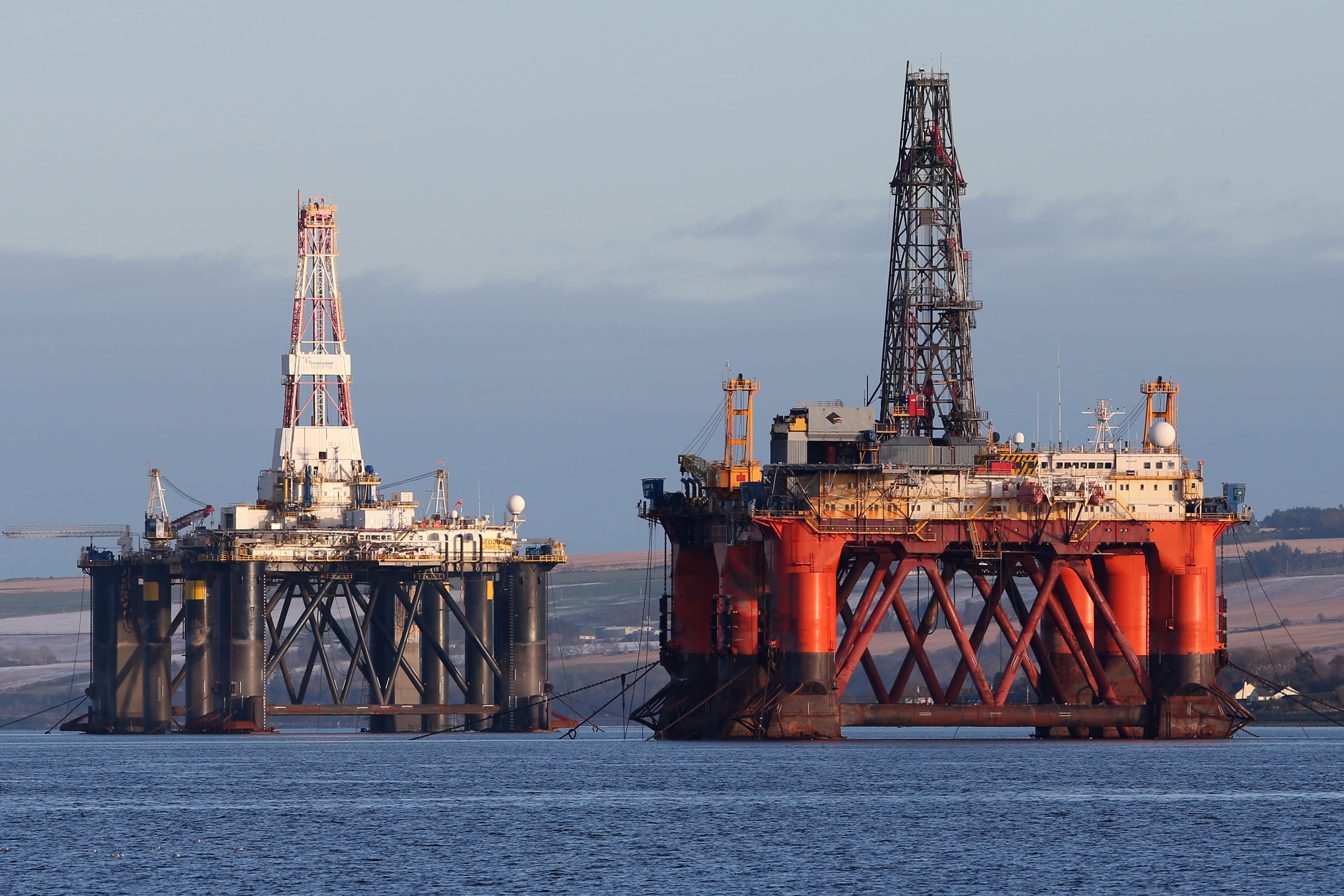Oil and gas sector has made ‘significant progress’ on emissions – industry body
Offshore Energies UK is a trade body for the UK’s offshore energies industry.

Your support helps us to tell the story
From reproductive rights to climate change to Big Tech, The Independent is on the ground when the story is developing. Whether it's investigating the financials of Elon Musk's pro-Trump PAC or producing our latest documentary, 'The A Word', which shines a light on the American women fighting for reproductive rights, we know how important it is to parse out the facts from the messaging.
At such a critical moment in US history, we need reporters on the ground. Your donation allows us to keep sending journalists to speak to both sides of the story.
The Independent is trusted by Americans across the entire political spectrum. And unlike many other quality news outlets, we choose not to lock Americans out of our reporting and analysis with paywalls. We believe quality journalism should be available to everyone, paid for by those who can afford it.
Your support makes all the difference.The UK’s oil and gas industry has been credited with “significant progress” towards its emissions reduction targets, as figures show its greenhouse gas emissions have fallen by 28% since 2018.
According to a report by industry body Offshore Energies UK (OEUK), the decrease means the sector has achieved its 2027 emissions target, of a 25% reduction in emissions from the production of oil and gas, four years ahead of schedule.
The report also showed the sector’s methane emissions plunged by 53% over the same period, achieving its 2030 target of halving methane emissions from oil and gas production seven years early.
Under the North Sea Transition Deal, the UK’s oil and gas industry is committed to reductions in emissions against a 2018 baseline of 10% by 2025, 25% by 2027, and 50% by 2030, with the aim of achieving net zero by 2050.
We are pleased by the huge efforts made by the UK oil & gas industry and the supply chain to reduce emissions as we scale up new sources of renewable energy
These targets relate specifically to “upstream” emissions from oil and gas production, and not to emissions generated by the burning of fossil fuels once they have entered use.
Mark Wilson, HSE & operations director at OEUK, said: “We are pleased by the huge efforts made by the UK oil & gas industry and the supply chain to reduce emissions as we scale up new sources of renewable energy.
“Oil and gas will remain essential for decades to come. It is better from all points of view: financial, environmental and social, that energy comes from our own, homegrown North Sea supplies.
“The alternative is importing more of the oil and gas we still need. This can increase the carbon footprint by up to four times and lead to loss of UK revenue, endangering jobs as well as impacting our security of supply.
“The UK oil and gas industry remains committed to its emission reduction targets and has made significant progress, but supportive policies and new investment are essential to ensure the energy transition is achieved without compromising energy security.”
The OEUK report sets out that “improvements” by offshore facility operators accounted for “almost 70%” of the reduction in emissions.
These include, it said, the modification of power systems used to extract oil and gas from reservoirs deep under the seabed, and the introduction of new systems to capture unused gas under pressure that was previously burned off for safety reasons.
This is all smoke and mirrors. These short-term targets were so weak as to be almost impossible to miss
Emissions from these so-called flaring and venting processes have also fallen by more than half (52%) in the past five years.
In response, Tessa Khan from advocacy group Uplift, which campaigns for a rapid and fair transition away from oil and gas production, said: “This is all smoke and mirrors. These short-term targets were so weak as to be almost impossible to miss.
“Look slightly further ahead and the industry is set to bust its future emission reduction targets, which are supposed to be guard rails to ensure the UK meets its climate plans.
“This is transparently part of the industry’s persuasion campaign to be allowed to continue drilling.
“It ignores the fact that the UK, having burned most of its reserves, now gets the majority of its gas imports from Norway, which banned flaring decades ago and whose gas is half as polluting as the UK’s.”
According to OEUK the North Sea still has the potential to “unlock” the equivalent of 13.5 billion barrels of domestic oil and gas.
The body said securing the continuing supply of “homegrown” energy will support the transition to renewables such as wind and hydrogen by sustaining the energy supply chain.
It added that “unlocking” private investment in homegrown energy will also protect 200,000 jobs, provide billions in revenue to the Treasury, and reduce UK dependence on imports from overseas.
Offshore Energies UK is a trade body for the UK’s offshore energies industry, and represents hundreds of organisations with an interest in offshore oil, gas, carbon capture and storage, hydrogen, and offshore wind.